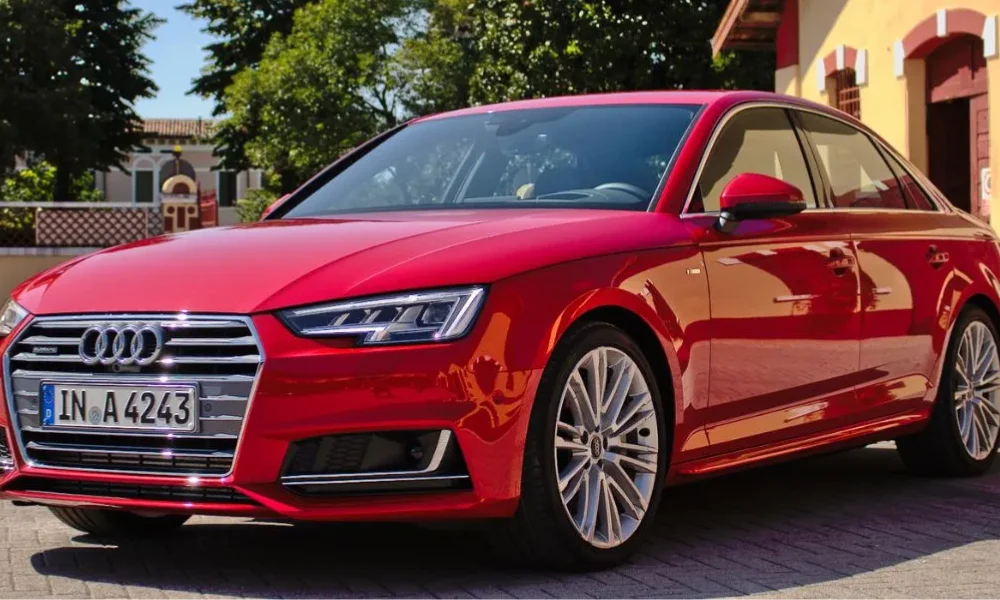Audi Cars Prices Slashed After GST 2.0: Up to ₹7.83 Lakh Savings on Q8, Q7

Audi Cars Prices Slashed After GST 2.0: Up to ₹7.83 Lakh Savings on Q8, Q7
The recent GST 2.0 reforms have sparked excitement among car buyers in India, bringing substantial price reductions across various vehicle segments, including luxury cars. Audi India has announced significant price cuts for its popular models, effective immediately, in response to the revised tax structure. The Audi Q8, Q7, Q5, A6, and A4 have seen price reductions of up to ₹7.83 lakh (ex-showroom), making these premium vehicles more accessible. This article explores the new pricing, the impact of GST 2.0, and what these changes mean for luxury car buyers in India.
Revised Audi Prices: Significant Savings Unveiled
Audi India has promptly passed on the benefits of the GST 2.0 reforms, announcing price reductions across its lineup of luxury SUVs and sedans. The flagship Audi Q8 leads with the highest savings, followed by the Q7, Q5, A6, and A4. Below is a detailed table showcasing the revised ex-showroom prices and the savings customers can expect:
| Model | Current Prices | New Prices | Price Difference |
|---|---|---|---|
| Audi Q8 | ₹1.17 crore | ₹1.09 crore | -₹7.83 lakh |
| Audi Q7 | ₹92.29 lakh | ₹86.14 lakh | -₹6.15 lakh |
| Audi Q5 | ₹68.30 lakh | ₹63.75 lakh | -₹4.55 lakh |
| Audi A6 | ₹67.38 lakh | ₹63.74 lakh | -₹3.64 lakh |
| Audi A4 | ₹48.89 lakh | ₹46.25 lakh | -₹2.64 lakh |
The Audi Q8, a premium luxury SUV, benefits the most with a ₹7.83 lakh price cut, reducing its starting price to ₹1.09 crore from ₹1.17 crore. The Audi Q7 follows with a ₹6.15 lakh reduction, now starting at ₹86.14 lakh. The Q5, a midsize SUV, is now priced at ₹63.75 lakh after a ₹4.55 lakh cut, while the A6 and A4 sedans see reductions of ₹3.64 lakh and ₹2.64 lakh, respectively. These price adjustments enhance Audi’s competitiveness in India’s luxury car market.
GST 2.0: A Game-Changer for Luxury Vehicles
The GST 2.0 reform has simplified India’s tax structure, consolidating multiple slabs into two primary rates (5% and 18%) with a special 40% slab for luxury goods, including high-end vehicles. Previously, luxury cars like Audi’s models were taxed at 28% GST plus a 20–22% compensation cess, resulting in an effective tax rate of up to 50%. The scrapping of the compensation cess, despite the GST rate increasing to 40%, has reduced the overall tax burden by about 10%. This applies to all Audi models, including SUVs and sedans, classified as luxury vehicles (above 4 meters in length, with engines above 1500cc and ground clearance exceeding 170mm).
| Category | Old GST Rates | New GST Rates | Difference |
|---|---|---|---|
| Tax Rate | 28% | 40% | +12% |
| Compensation Cess | 22% | 0% | Totally scrapped |
| Total Tax | 50% | 40% | -10% |
This tax restructuring has lowered the cost of luxury vehicles, offering savings of up to 10% for buyers. The simplified tax framework also eliminates previous classification ambiguities, benefiting both manufacturers and consumers.
Immediate Implementation: Audi’s Festive Strategy
Audi India has implemented the new prices with immediate effect, unlike some manufacturers planning to apply changes from September 22, 2025. This move aligns with brands like Mahindra and MG, aiming to capitalize on the festive season’s high demand. The immediate price cuts position Audi to attract buyers during Navratri and Diwali, when car sales typically surge. This strategic decision enhances Audi’s market presence and appeals to consumers looking for premium vehicles at reduced prices.

Model-Wise Benefits: Q8 and Q7 Shine
The Audi Q8, renowned for its sleek design and advanced features, sees the largest price reduction at ₹7.83 lakh, making it a strong contender against rivals like the Mercedes-Benz GLS and BMW X7. The Audi Q7, a family-oriented luxury SUV, benefits from a ₹6.15 lakh cut, enhancing its appeal compared to the Volvo XC90. The Q5, now priced at ₹63.75 lakh after a ₹4.55 lakh reduction, offers an attractive entry into Audi’s SUV lineup. The A6 and A4 sedans, with cuts of ₹3.64 lakh and ₹2.64 lakh, respectively, cater to buyers seeking premium sedans with modern technology and comfort.
Why These Price Cuts Are Significant
India’s luxury car market, though a small fraction of total car sales, is growing rapidly due to increasing disposable incomes and aspirational buyers. The GST 2.0 reforms make luxury vehicles more affordable, potentially boosting demand. Audi’s immediate price reductions also lower the road tax, calculated based on ex-showroom prices, reducing the overall cost of ownership. This is particularly appealing during the festive season, when consumer spending peaks.
Broader Industry Impact of GST 2.0
Audi’s price cuts are part of a broader industry trend, with other luxury brands and mass-market manufacturers also announcing reductions. The removal of the compensation cess and lower taxes on auto components could further reduce production costs, potentially leading to additional price adjustments. This industry-wide response to GST 2.0 is expected to stimulate the automotive market, driving sales across both luxury and mass-market segments.
What’s Next for Audi Buyers?
While Audi has announced price cuts for its core models, details on performance-oriented vehicles like the S5, Q3 Sportback, and RSQ8 are still awaited. Buyers interested in these models should monitor updates from Audi India. For now, the reduced prices of the Q8, Q7, Q5, A6, and A4 offer a prime opportunity for luxury car enthusiasts to own a premium Audi at a lower cost. Customers can visit Audi India dealerships to explore the updated pricing and book their preferred model.
Comment / Reply From
No comments yet. Be the first to comment!






